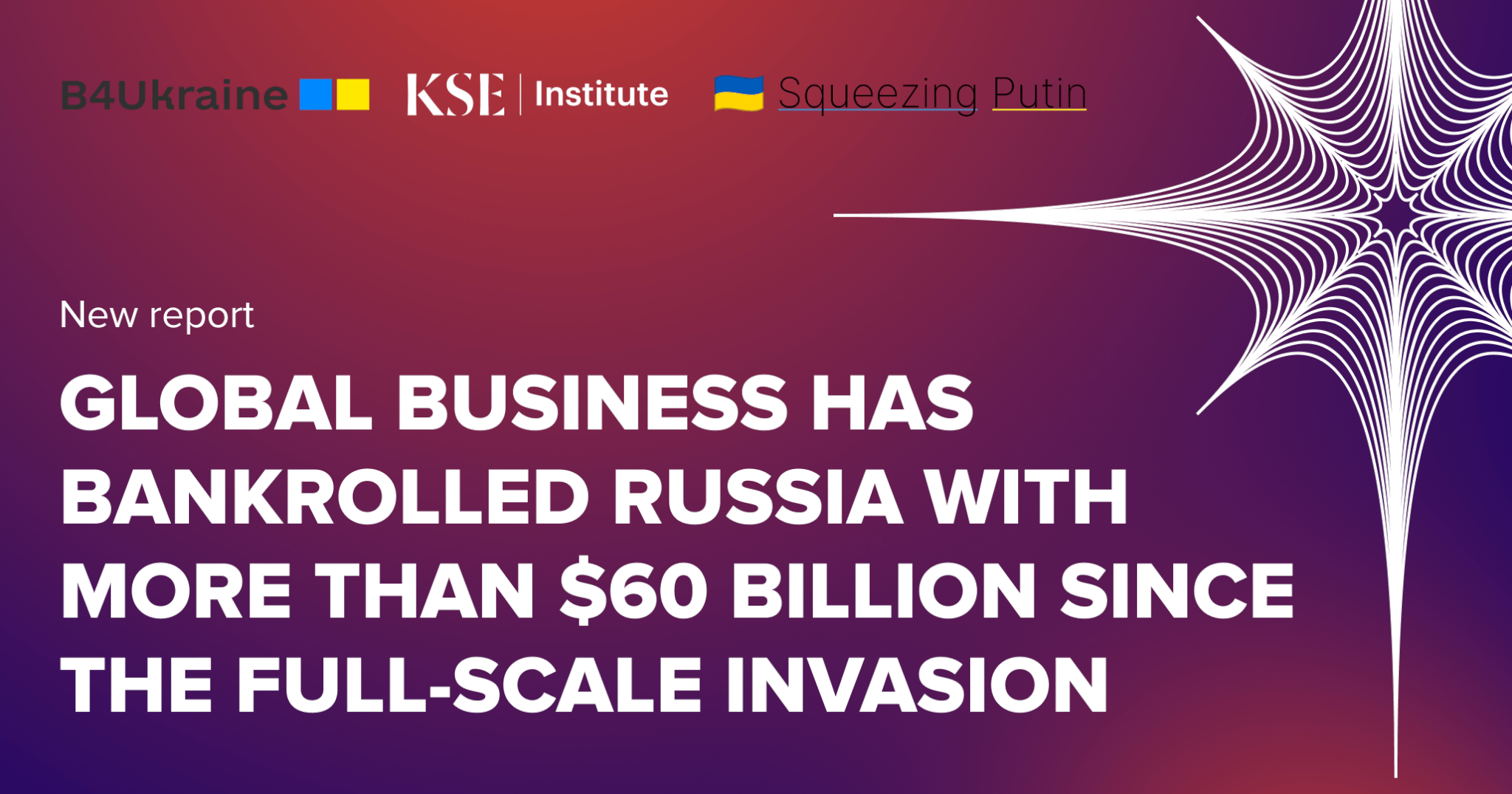- Kyiv School of Economics
- About the School
- News
- International companies have bankrolled Russia’s war budget with more than $60 billion since the start of the full-scale invasion — new report by B4Ukraine, KSE Institute, and Squeezing Putin
International companies have bankrolled Russia’s war budget with more than $60 billion since the start of the full-scale invasion — new report by B4Ukraine, KSE Institute, and Squeezing Putin
27 August 2025

In 2024, foreign companies earned $201 billion in revenues in Russia and posted record net profits of $19.5 billion — the highest level in the past three years of the full-scale war. According to the new report “Corporate Complicity: How Global Firms Bankrolled Russia’s War Chest in 2024”, prepared by B4Ukraine, KSE Institute and the Squeezing Putin initiative, these firms paid at least $20 billion in taxes to the Kremlin last year alone, and more than $60 billion since the start of the full-scale invasion.
This amount is equivalent to nearly half of Russia’s projected military budget for 2025 and sufficient to finance over one million Russian soldiers under contract. Despite well-documented atrocities — mass killings, torture, deportations, and the destruction of civilian infrastructure — more than half of international companies have chosen profit over principle and continue operating in the aggressor state’s market.
As of July 2025, only 503 companies have fully exited Russia through sales or liquidation of assets. By contrast, 2,326 companies — or 55% of those present at the beginning of 2022 — continue doing business in the country. Another 1,377 have reduced operations or are in the process of leaving but remain present on the market.
Some of the Kremlin’s largest corporate taxpayers remain companies headquartered in G7 and EU countries. In 2024, American firms reported $38 billion in revenue and paid $1.2 billion in profit tax, while German companies generated $19 billion in revenue and contributed $594 million in taxes. Altogether, businesses from EU member states earned $93.5 billion and handed over approximately $2.64 billion to the Kremlin. Meanwhile, Chinese and Turkish companies have been rapidly capturing market share left behind by some departing Western brands, particularly in the automotive and technology sectors.
The financial sector accounted for the largest tax contributions by foreign firms. In 2024, it paid $1.28 billion in profit tax, confirming the trend of recent years. Austria’s Raiffeisen Bank International, Italy’s UniCredit, and Hungary’s OTP Bank remain key players. The fast-moving consumer goods (FMCG) sector generated $32.7 billion in revenue and $670 million in profit tax, with major contributors including Mars, Nestlé, Procter & Gamble, Leroy Merlin, and Metro. The automotive industry produced $30.4 billion in revenue and $571 million in taxes, as Chinese manufacturers quickly moved to fill the gap left by Western brands. Food, beverage, alcohol, and tobacco companies together generated $71.4 billion and paid $1.67 billion in taxes.
Many corporations have failed to deliver on their public promises to exit. In 2024, PepsiCo opened a new plant in Russia; Mondelez removed from its website the commitment to make its Russian operations “stand-alone”; Raiffeisen Bank International remained the largest foreign bank taxpayer; Mars invested in new warehouse facilities in Moscow; Coca-Cola HBC continued to profit through the Dobry Cola brand.
The report calls on companies to pursue a swift and responsible exit from the Russian market, ensure transparency in financial reporting, and contribute to Ukraine’s recovery and reconstruction. It urges G7 and EU governments to establish clear standards of corporate conduct, adopt additional sanctions, and create incentives for firms that choose to invest in Ukraine rather than Russia. Investors are urged to conduct heightened human rights due diligence of their portfolios and pressure companies that still operate in the aggressor state.
